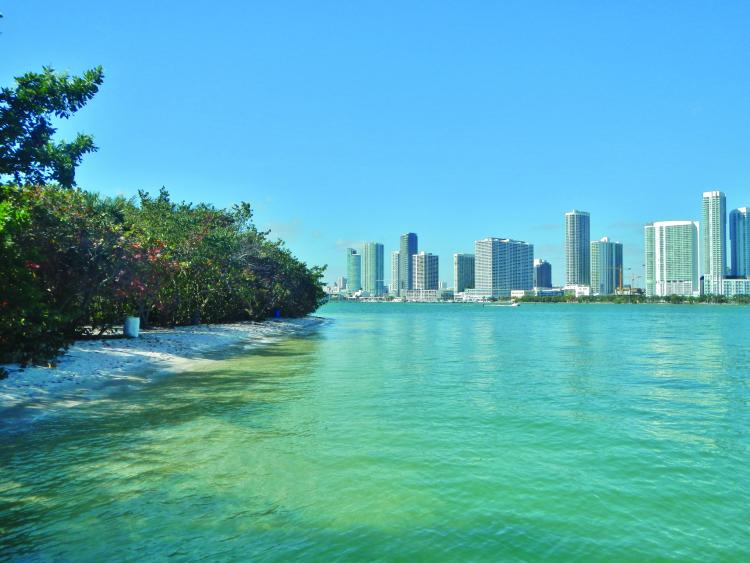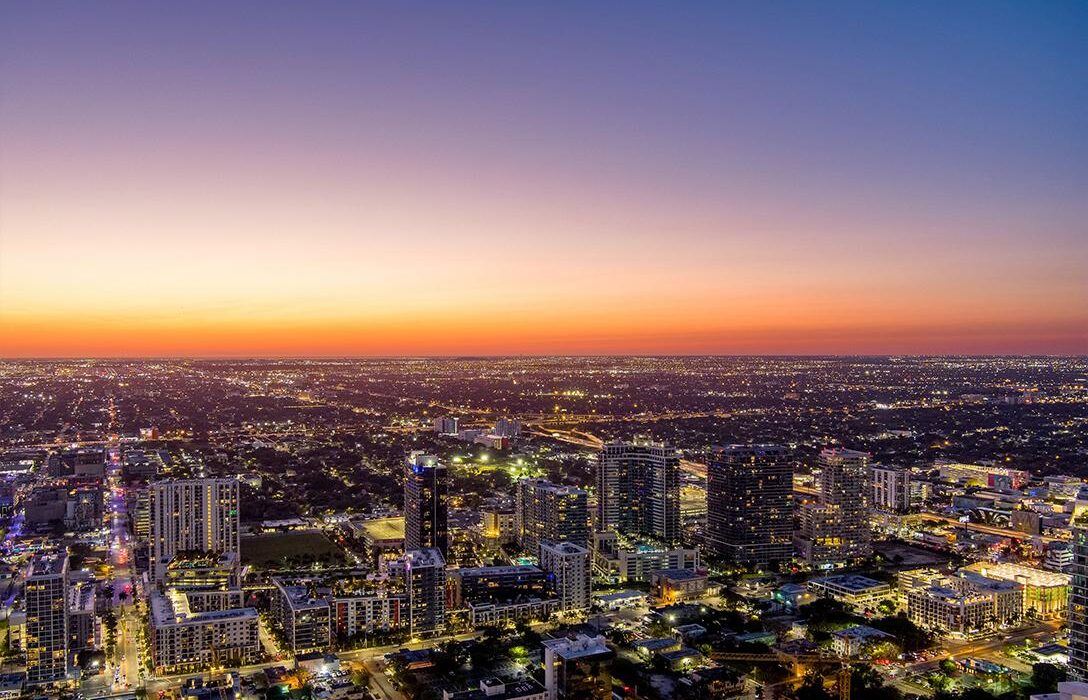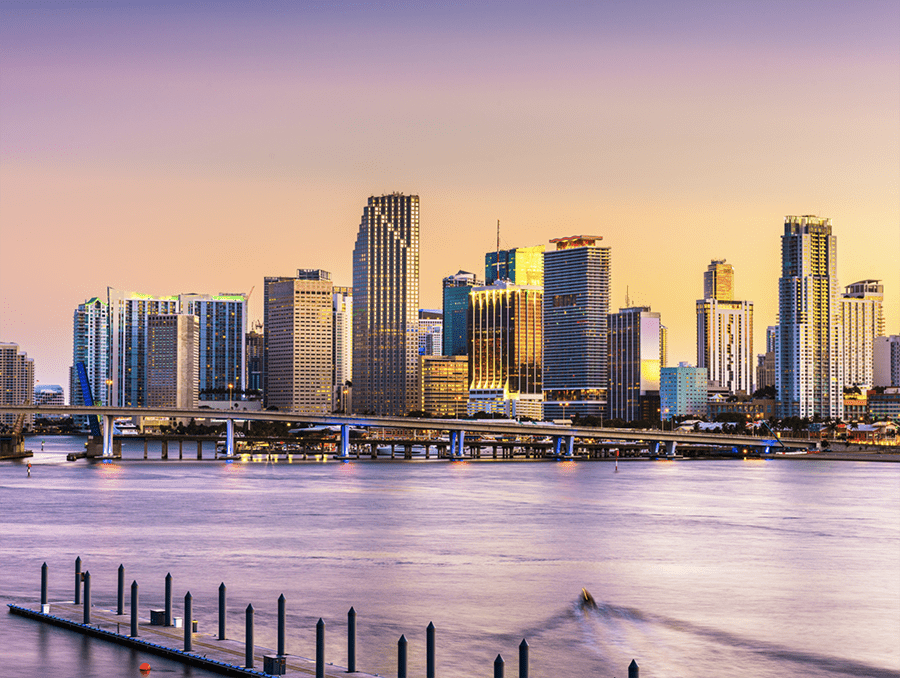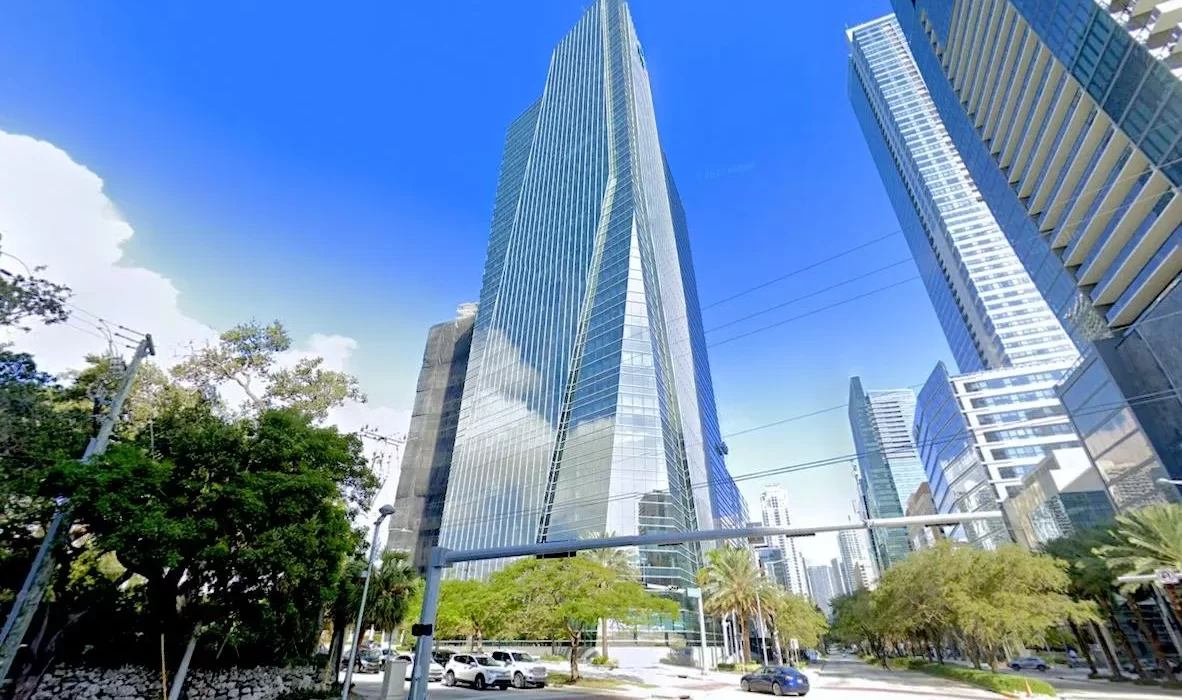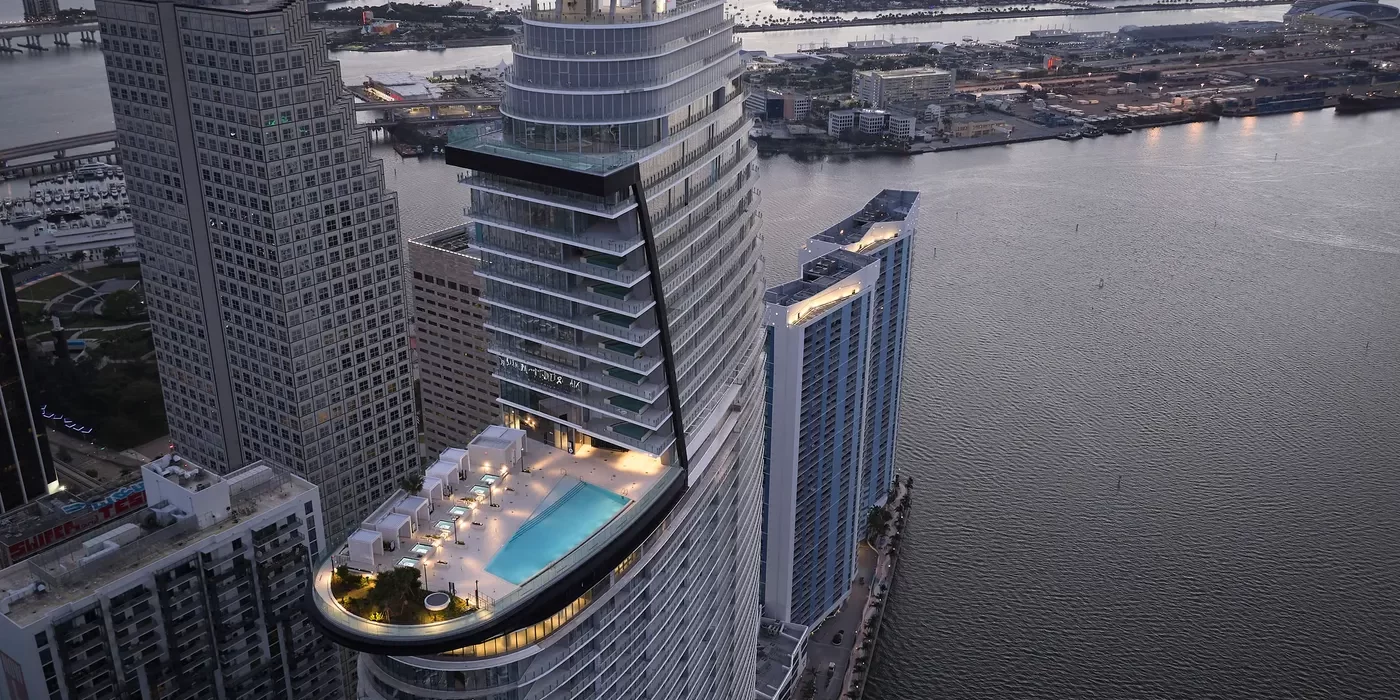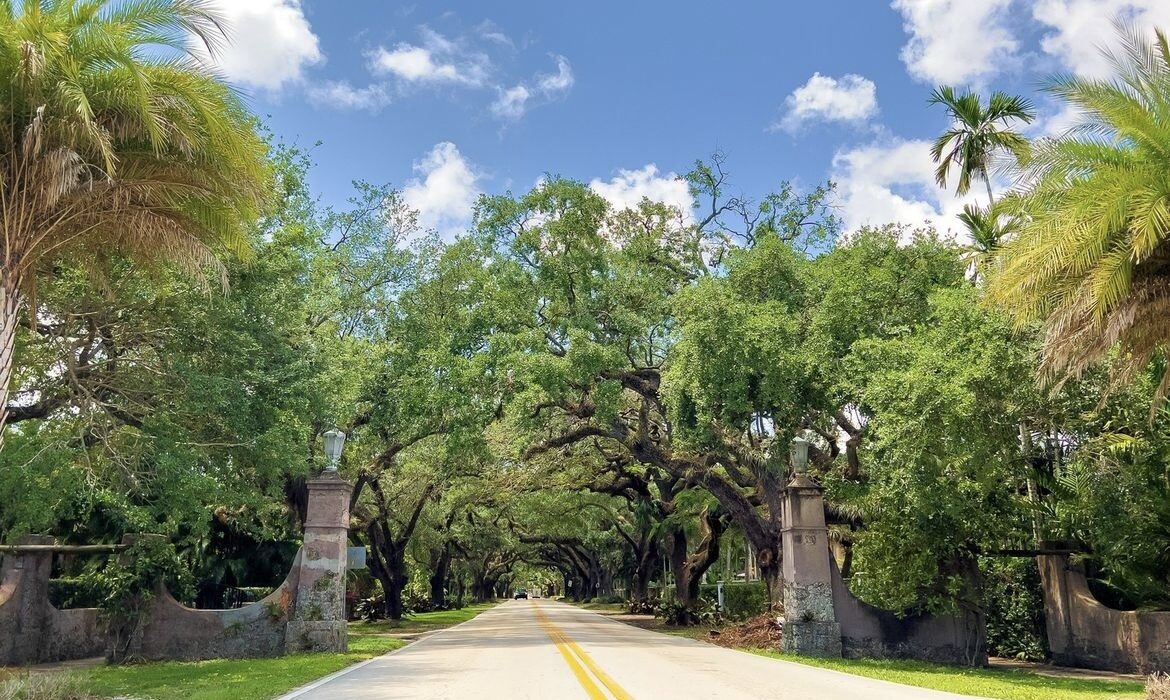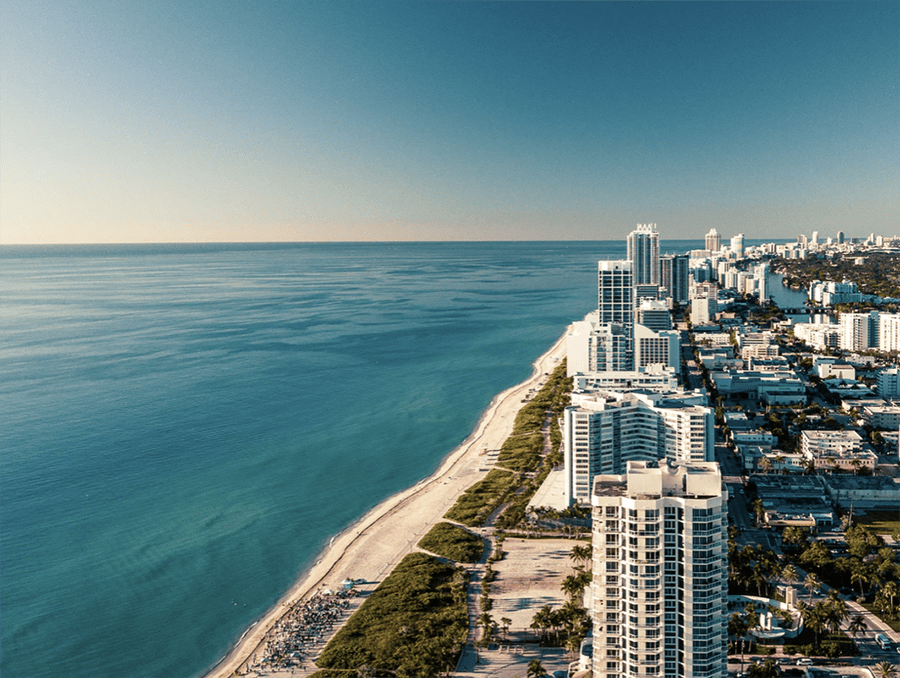Miami, long known for its vibrant real estate market and picturesque beaches, is undergoing a transformative period that promises to redefine luxury urban living. A series of ambitious developments are not only reshaping the city’s iconic skyline but also setting new global standards for residential and hospitality experiences. From record-breaking heights to unprecedented amenities, these projects are attracting international attention and solidifying Miami’s position as a premier destination for high-end real estate.
888 Brickell Avenue: A New Pinnacle of Luxury
Leading the charge is 888 Brickell Avenue, an audacious project born from the collaboration between JDS Development and Studio Sofield. Set to become Miami’s tallest building at an impressive 1,049 feet, this hybrid hotel and luxury condominium complex is poised to be a game-changer in the city’s architectural landscape.
Drawing inspiration from iconic modernist skyscrapers like New York’s Seagram Building and infused with elements of Milanese mid-century design, 888 Brickell Avenue boasts a striking façade that combines ivory travertine, white stucco, and matte black steel beams. This elegant composition gives the building a distinctly vertical appearance, setting it apart from its neighbors and creating a new focal point for the Miami skyline.
One of the most distinguishing features of 888 Brickell Avenue is its ground-level aesthetic. A gold-beaded screen wraps around multiple stories, emitting a warm, golden glow that has quickly become the property’s signature look. This dazzling display sets the tone for the luxurious experience that awaits within, where white-glove service and gracious hospitality are the norm.
The development is a testament to JDS Development Group’s reputation for pushing the boundaries of engineering and design. Led by Michael Stern, the team brings a wealth of experience from high-profile projects like New York’s 111 West 57th Street and the Brooklyn Tower. With 888 Brickell Avenue, they’re not only continuing their track record of creating supertall residential towers but also making their first foray into the hospitality sector.
The Residences at 1428 Brickell: Elevating Waterfront Living
Rising 70 stories above the Brickell neighborhood, The Residences at 1428 Brickell is set to become another iconic centerpiece of Miami’s evolving skyline. This architectural masterpiece offers 189 exclusive homes, each designed to maximize the quality of life for its residents.
With units ranging from 1,800 to 4,000 square feet for standard residences, and up to 10,000 square feet for penthouses, The Residences at 1428 Brickell caters to those seeking spacious, luxurious living spaces. Every home in this 70-story tower faces Biscayne Bay directly, providing stunning water views and thoughtfully designed to maximize natural light.
The development’s location at the intersection of Brickell Avenue and Southeast 14th Terrace puts it in the heart of one of Miami’s most desirable neighborhoods. Its proximity to the Four Seasons Residences Miami further cements its status as a prime piece of real estate in the city’s luxury market.
Mercedes-Benz Places: Automotive Luxury Meets Urban Living
In a groundbreaking move, Mercedes-Benz is making its first foray into the residential market in North America with Mercedes-Benz Places. This visionary community in Brickell represents a unique fusion of innovative living solutions and the unparalleled standards synonymous with the Mercedes-Benz brand.
Developed by JDS Development Group, the project brings together an all-star team of designers and architects. The Mercedes-Benz design team has collaborated with award-winning SHoP Architects (working alongside ODP), while interiors are being crafted by Woods Bagot, and landscaping is under the expert guidance of Field Operations.
The development is set to include luxurious condominium residences, office and wellness spaces, a world-class hotel, and a newly-built open park designed by Field Operations. This last feature is particularly noteworthy, as it aims to create a leafy oasis in the heart of urban Brickell, complete with winding paths, local flora and fauna, playgrounds, sports courts, and ample green spaces.
With 130,000 total square feet dedicated to amenities and hospitality spaces, Mercedes-Benz Places is designed to be more than just a residence – it’s a lifestyle destination that combines sophistication, convenience, and sustainable living in one extraordinary location.
The Residences at Mandarin Oriental: A New Benchmark in Waterfront Luxury
The Residences at Mandarin Oriental represents a pinnacle of refined luxury along Miami’s waterfront. This development brings together a highly acclaimed global design team, each member renowned in their respective fields, to create a truly unique living experience.
Kohn Pederson Fox Associates (KPF) is responsible for the striking exterior architecture that promises to redefine the city’s skyline. The interiors of The Residences will be infused with the sophisticated aesthetic vision of Parisian designer Tristan Auer, while the esteemed Laura Gonzalez, featured on the AD 100 and Elle Décor A-List, will craft the hotel interiors. The landscape architecture, led by the renowned Thai firm Shma, completes this world-class team.
Starting at $3.5 million, The Residences at Mandarin Oriental offers a range of exclusive amenities that set a new standard for luxury living. Residents will enjoy panoramic views of Biscayne Bay, access to multi-tiered landscaped infinity swimming pools, private cabanas, executive work lounges, private dining rooms with chef kitchens, world-class restaurants, a signature spa, and state-of-the-art health and wellness facilities.
Okan Tower: At the Crossroads of Miami’s Future
With its alluring curved façade and soaring height, Okan Tower is designed to be the dramatic centerpiece of downtown Miami’s skyline. Its central location puts residents at the heart of the city’s vibrant cultural scene and growing business districts.
The tower’s strategic position provides easy access to key transportation routes, including the downtown Metromover loops and Government Center Metrorail Station. This connectivity, combined with proximity to major highways, the Brightline commuter rail station, and Port Miami, makes Okan Tower an ideal base for those who value both local convenience and global connectivity.
Residents of Okan Tower will find themselves at the forefront of an exciting urban residential experience, with easy access to parks, shops, restaurants, museums, professional sports venues, concerts, performing arts centers, festivals, and nightlife. The tower’s location also allows for quick escapes to the waters of Biscayne Bay or Miami Beach, offering a perfect balance of urban energy and coastal relaxation.
Villa Miami: Bringing Italian Elegance to the Magic City
Villa Miami introduces a unique concept to the city’s luxury real estate market: airy, Italianate living high above the Miami skyline. Developed by New York design studio Charles & Co, the residence interiors marry sophisticated European sensibility with a focus on warmth, romance, and waterfront living.
Each residence at Villa Miami is designed to evoke the feel of a European countryside estate, with sunlight pouring in from all directions, sprawling living rooms made for gathering and lounging, and dining rooms built for entertaining. The heart of each home is the kitchen, equipped with chef-grade appliances and designed by MFG’s Mario Carbone, featuring CornuFé series ovens and stovetops from La Cornue, Wolf appliances, and pasta sinks.
The bedroom suites offer unending views of the bay and the Miami skyline, with expansive floor plans that include private dressing rooms. Bathrooms are an extension of the building’s hydrotherapy amenities, featuring curved, deep-soaking tubs and soft marble, brass, and fluted glass finishes throughout.
As these developments near completion, they collectively promise to transform not only Miami’s physical landscape but also its reputation on the global stage. By combining cutting-edge architecture, world-class amenities, and innovative living concepts, these projects are cementing Miami’s status as a leader in luxury urban living. For investors, residents, and visitors alike, the Magic City is entering a new golden age of architectural and lifestyle innovation, setting the stage for an exciting future in one of America’s most dynamic cities.
Photo via Villa Miami
